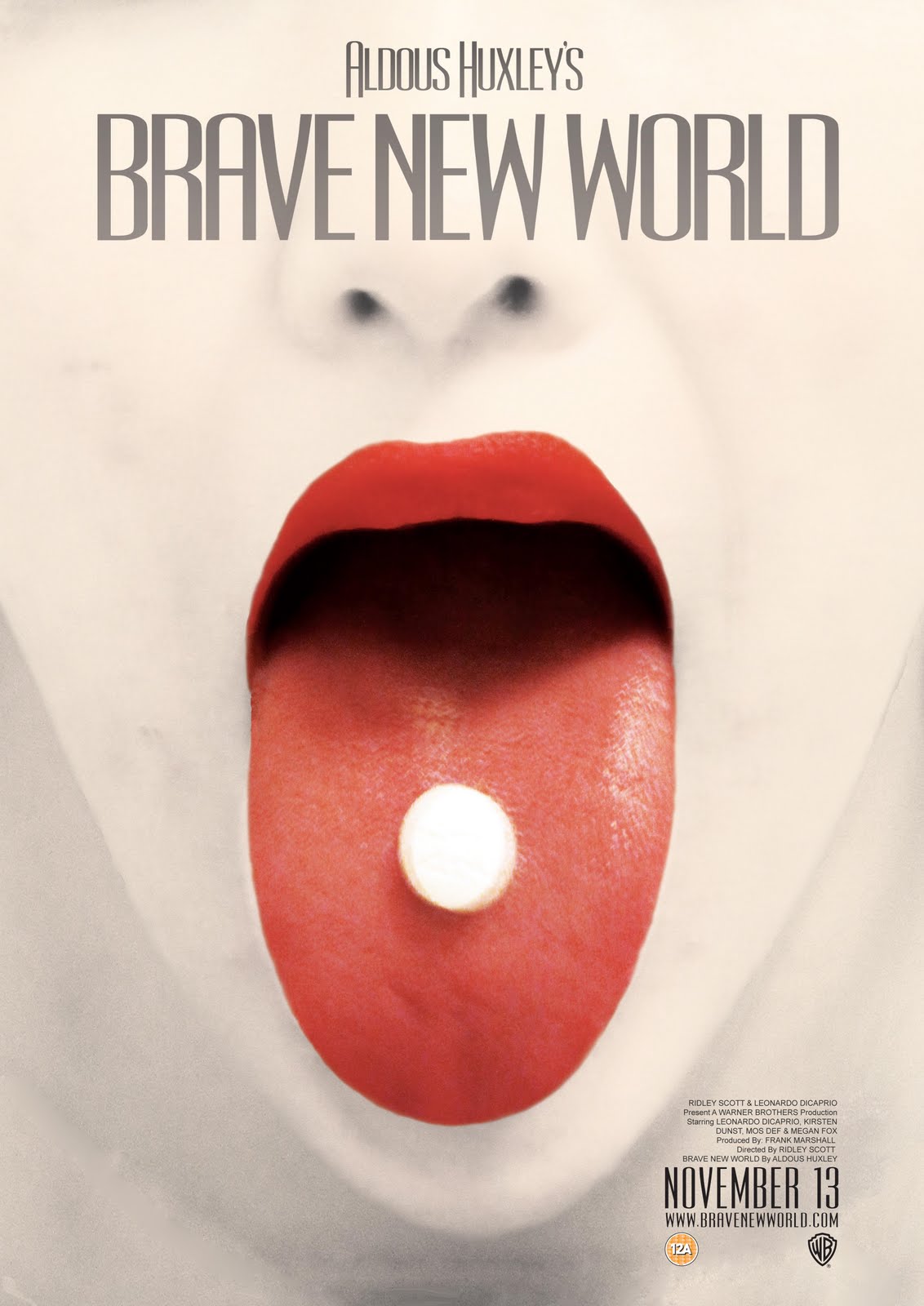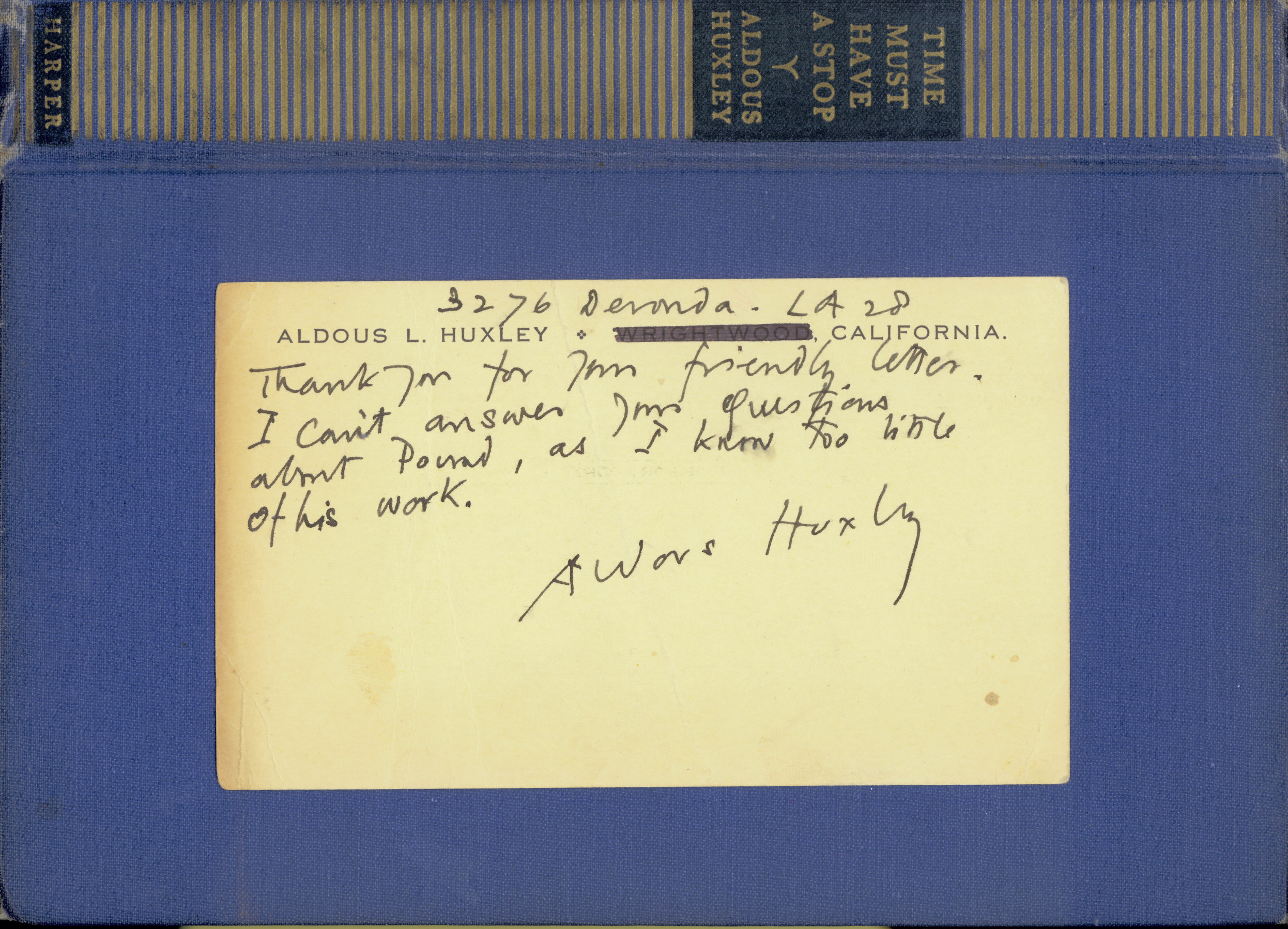

We had learned how to invent things, and the question of why we invent things receded in importance” (Postman 42). Postman describes the cause of this to be that “the greatest invention of the nineteenth century was the idea of invention itself.

God is not merely second to technology - as is the paradigm of society today, which Postman calls the ideals of a ‘Technocracy” - but God has completely been stamped out and forgotten, replaced by paradigms of God being progress, which is the ideal of a Technopoly. which is the abbreviated form for After Ford and Before Ford, which Huxley clearly used to parody our current dating system of B.C.

In fact, the dating system used in the novel is based upon A.F. As Postman states, “the great narrative of inductive science takes precedence over the great narrative of Genesis, and those who do not agree must remain in intellectual backwater” (Postman 50). Society’s closest acknowledgement of a “god” is Ford. The only deity-like or religious principles that people follow are that of Henry Ford, inventor of the Model T. In the novel all religion has faded away and been forgotten by the citizens of the World State. The people are no longer oriented to believe in god, but instead only believe in the principles of consumption. This perspective describes with pinpoint accuracy how Huxley’s society functions. It also came to be believed that the engine of technological progress worked most efficiently when people are conceived of not as children of God or even as citizens but as consumers” (Postman 42).

Postman provides an example for the means of how this transition in society is taking place today and suggests how Huxley may have imagined it happening: “Along with there developed a profound belief in all the principles through which invention succeeds: objectivity, efficiency, expertise, standardization, measurement, and progress. They are taught to conform to the consumer-oriented mentality of the culture. All the citizens of The World State in the novel are conditioned since birth to maintain that buying new is proper and repairing is immoral. Ending is better than mending, ending is better than mending, ending is better than mending.’” (Huxley 54). The consumerist ideals of the society can be captured by one of the hypnopaedic proverbs demonstrated in this quote from the novel: “‘But old clothes are beastly,’ continued the untiring whisper. Consumerism and productivism are the purpose of life in Huxley’s industrial utopia. The mentality of the society is that progress, through invention, is the key goal of mankind. The most prevalent themes in Brave New World are centered around the industrial and economic systems in novel, and how technology has brought the advancements of these themes to fruition. Through these scholastic perspectives it can be seen that the novel is a dangerously accurate prophesy of technology’s capacity to dominate society, and how this domination is silently changing the goals, moralities, and values of our culture. Sir Ken Robinson’s discussions on education elucidate these congruencies. What can be seen about Brave New World and its comments on technological advancements as well as their effects in society, when we examine it from the perspective of Postman’s Technopoly? The medical advancements in Huxley’s novel and its concepts of educational standardization carry drastic similarities to society today as well. This society is one which Neil Postman, the author of Technopoly: The Surrender of Culture to Technology, would consider a ‘Technopoly.’ But Postman also perceives cultures in the world today to be nearing this socio-technologic status. The citizens are not concerned with themselves as individuals they have been conditioned to see the world as a collective and technologically oriented. The morals and aspirations of the society are not those of our society today - such as family, love, and success - but instead are focused around industry, economy, and technologic growth and improvement. The world in Aldous Huxley’s Brave New World has one goal: technological progress.


 0 kommentar(er)
0 kommentar(er)
